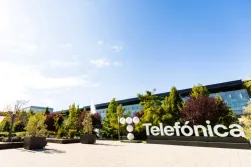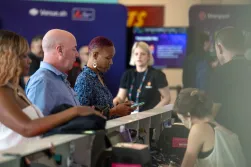Public and private sector organizations in Europe and Central Asia invested almost $1 trillion in information technology in 2021, according to IDC. Their study forecasts that COVID-19 accelerated the need to realize the full benefits of such critical investments in technology.
Organizations that will succeed in the next normal are those that embrace technology innovation to deliver on economic and societal purpose; develop resilience against short-term shocks and long-term stresses; reimagine their business; master intelligence, operations, and experiences; and open up to dynamic ecosystems (PRIME). The first edition of the IDC Europe and Central Asia Industry Insights Awards reviewed 30 candidate initiatives across 12 countries to recognize truly groundbreaking and transformative projects that will PRIME the future of industries. The awards cover four categories: the future of personal mobility, the future of shopping, the future of things, and the future of well-being.
The future of the personal mobility category included technology-driven initiatives that are making convenient, affordable, safe, and environmentally sustainable mobility possible. The category included initiatives carried out by automotive manufacturers, mobility-as-a-service companies, public and private passenger transportation operators (such as railways, airlines, and public transit), academia and research organizations, and city transportation departments. Three initiatives were shortlisted in this category Dutch National Railways NS Flex, an account-based ticketing platform that offers transparent pricing and payments across train, bus, tram, and metro; the city of Vaasa, which engaged residents to produce video data on the city's street and cycle networks; and MICHELIN DDI, a start-up organization within the Michelin Group, which is the initiator and animator of the Better Driving Community. MICHELIN DDI won the category.
The future of the shopping category included technology-driven initiatives that innovate the shopping experience by blurring the lines of physical and digital and create a trusted, holistic, real-time, ingenious, valued and effortless shopping experience for customers and consumers. The category included initiatives carried out by retailers, wholesalers, and manufacturers. Three initiatives were shortlisted in this category. Outletcity Metzingen, which invested in new IT infrastructure and applications to roll out future shopper engagement services; Casino Group & Monop, which introduced "Black Box," the first unstaffed, checkout-free store in Europe; and H&M, which introduced Looop, a recycling machine to turn old garments into new ones in just eight steps to sensitize customers to the possibilities of recycling. H&M won the category.
The future of things category included technology-driven initiatives that push the boundaries of what manufacturing can achieve, blending physical with digital, creating connected, omni-available, recyclable-rematerialized-reusable, and experiential things from concept to commerce to disposal. The category included initiatives carried out by designers, manufacturers, operators, and service providers that design, build, operate, and/or maintain "things." Three initiatives were shortlisted in this category. Rice Exchange, which partnered with Fujitsu to bring to market a global digital platform running on blockchain technology designed to buy and sell rice; Skjern Paper, which manufactures 75,000 tons of paper and board products each year from 100% recycled fiber, partnered with GE Digital to implement an industrial advanced analytics platform to predict and optimize process performance; and AB InBev, which partnered with Fujitsu and SettleMint to launch a pilot to use blockchain technology to give full transparency and traceability in its supply chain of barley and production processes, from consumers back to the farm. The winner is AB InBev.
The future of the well-being category included technology-driven initiatives built around purpose, respect, inclusiveness, mastery, and efficiency. The category included initiatives carried out by hospitals, public health authorities, health insurance providers, community care centers, nursing homes, academia and research organizations, and life science companies. Three initiatives were shortlisted in this category. The Machine Learning Ledger Orchestration for Drug Discovery (MELLODDY), a three-year EU-supported project which brings together European life sciences, research, and technology partners to establish a blockchain-enabled, privacy-preserving machine-learning platform that enables a new model of cross-company collaboration in drug discovery; Healthier Lancashire and South Cumbria (L&SC), which used technology like cloud and AI to support an integrated ecosystem of eight Clinical Commissioning Groups, five acute hospitals, and community trusts and local councils; and NHS National Services Scotland, which in partnership with ServiceNow, Capgemini, Atos, and KPMG deployed a platform to scale a new citizen portal to enable easy, 24 x 7 self-service, and manage personal protective equipment for citizens and staff, the test and protect contact tracing system, and vaccine administration. NHS National Services Scotland won the category.



















